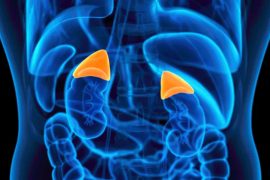What Are the Symptoms of Temporomandibular joint disorder?
The signs of TMJ are often discovered, diagnosed, and treated by dentists. When you visit your dentist for an exam, he or she may check to see if your jaw is tender or makes popping or clicking sounds when you open and close your mouth.
Besides the popping or clicking of your jawbone, you may notice some of the other symptoms of TMJ, which include:
- Jaw pain
- Headaches
- Lockjaw
- Difficulty moving the jaw
If you experience any pain in your jaw, you should discuss it with your doctor or dentist, especially if you suffer from fibromyalgia.
How Is TMJ Linked to Fibromyalgia?
About 2% of the US population suffers from fibromyalgia while about 4% of the population suffers from TMJ. If you have one of these disorders, you are more likely to have the other. However, researchers have not found a direct link between TMJ and fibromyalgia. Nevertheless, they do have several theories.
TMJ in fibromyalgia patients may be the result of loose connective tissues, which is a condition that is often associated with fibromyalgia. It is also possible that the TMJ contributes to a condition called central sensitization. Central sensitization is a type of hypersensitivity involving the nervous system. Many doctors believe that central sensitization is a key risk factor for developing fibromyalgia. In recent years, the medical community has begun classifying TMJ, fibromyalgia, and several other disorders as central sensitivity syndromes.



